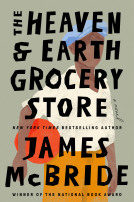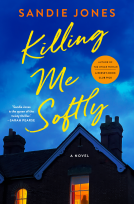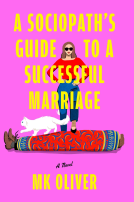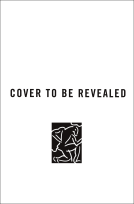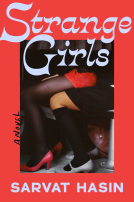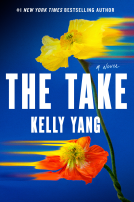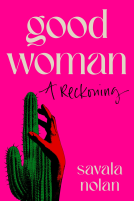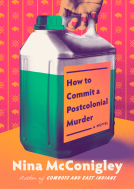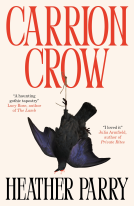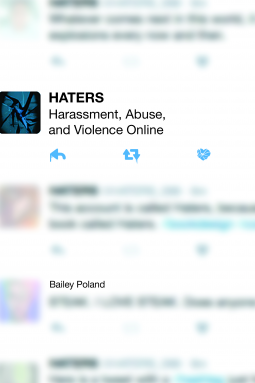
Haters
Harassment, Abuse, and Violence Online
by Bailey Poland
This title was previously available on NetGalley and is now archived.
Send NetGalley books directly to your Kindle or Kindle app
1
To read on a Kindle or Kindle app, please add kindle@netgalley.com as an approved email address to receive files in your Amazon account. Click here for step-by-step instructions.
2
Also find your Kindle email address within your Amazon account, and enter it here.
Pub Date Nov 01 2016 | Archive Date Nov 01 2016
University of Nebraska Press | Potomac Books
Description
Bullying, stalking, and trolling are just the beginning. Extreme examples such as GamerGate get publicized, but otherwise the online abuse of women is largely underreported. Haters combines a history of online sexism with suggestions for solutions.
Using current events and the latest available research into cybersexism, Bailey Poland questions the motivations behind cybersexist activities and explores methods to reduce footprints of Internet misogyny, drawing parallels between online and offline abuse. By exploring the cases of Alyssa Funke, Rehtaeh Parsons, Audrie Pott, Zoe Quinn, Anita Sarkeesian, Brianna Wu, and others, and her personal experiences with sexism, Poland develops a compelling method of combating sexism online.
Available Editions
| EDITION | Paperback |
| ISBN | 9781612347660 |
| PRICE | $19.95 (USD) |
Links
Average rating from 35 members
Featured Reviews
 Christine E, Reviewer
Christine E, Reviewer
Disclaimer: Arc via Netgalley
Taylor Swift tells us that since “haters gonna hate, hate” we should just “shake it off”. Considering how much shit, Ms Swift has taken because of her love life, she might be on to something. (And no, I am not a Swift fan. I just do not understand why a woman who dates is considered a slut, but a man who does it considered just human. Actually, I do understand, and it makes me want to strangle people).
Bailey Poland would disagree.
And I think she’s right.
Here’s the thing. There is some truth to the argument that a public figure must learn to take criticism and that criticism of a person’s work (say a song, a book) is different than criticism of a person. Too often many people blur that line (and for the record, it is fine if an author is cursing their computer screen while reading a review, but it can be a problem if the author goes public). Yet, in today’s modern world where many people have some type of online presence, everyone is criticizing for everything.
Well, almost everyone.
For instance, if a male gamer had talked about tropes in video games, would other gamers have created an app that allows a person digitally punch his face? Donald Trump has said some hateful things, but he really hasn’t called off speaking engagements because of safety concerns? What is it about women speaking their mind that drives some people insane?
You mean, it’s the women, speaking, minds part.
Poland’s book is really about cyber vixen, why it should not simply be shaken off (actually, why it can’t be) as well as suggests about how to deal with it. This means that she covers Gamergate as well as the various attacks upon Anita Sarkeesian. However, these are not the only examples that she uses. Even if you are a woman who has not been subjected to some type of cyber sexism. Whether it is a sexual comment while gaming, to being told you should be shot out of a canon for mentioning sexism to online mansplaining, most women have experienced some type of behavior that Poland is addressing. Usually women are told to shake it off.
Sometimes this doesn’t do anything.
Don’t believe me? Well, this is being posted on an online book community (more than one, actually), so you dear reader know about all those authors who target reviewers. How many of those reviewer targets were men and how many were women? While the reviewer issue isn’t something that Poland addresses directly (she does mention the whole puppy issue with the Hugos), you can quite easily apply many of her points. You can see many of her points simply watching how Trump and his supporters deal with many of their female critics.
In many aspects while Poland builds on the work of Laurie Penny, her work is more encompassing and somewhat less defined by gaming and geekdom -though gaming does prove a chapter or two. This is not surprising considering that Poland’s book is longer than Penny’s cyber seism essay. She also draws on the work of other feminists both in terms of strict feminist theory as well as cybersexism theory (if that is the correct term). In many ways, her books is timely because some of the issues and ideas that she mentions are the same ways that get used to explain the success of Trump’s political run.
The closing section of the book covers methods to deal with cybersexism , and perhaps this is the most important because it can be difficult to deal with speech issues online, where tone can be largely absent. And where is that line between speech and harassment in some cases).
This book is a timely and important read.
 Titivillus B, Educator
Titivillus B, Educator
Important analysis of gender politics and the web. Vital reading for anyone who has concerns about the brutalising potential of the anonymity the Internet encourages.
 Killian P, Reviewer
Killian P, Reviewer
I have been a fan of Anita Sarkeesian (<i>Feminist Frequency</i>) for years. Her videos on sexist themes in entertainment always make me rethink how I approach media, even if I don't agree with everything she says. Unfortunately, I also remember how I was introduced to her. Someone had posted a negative thread to /r/gaming about her Kickstarter (<i>Tropes vs Women in Video Games</i>) several years ago, and it made it to the front page complete with some of the most vile comments I have ever read. I don't spend time on /r/gaming anymore. Why? Because that was the day I realized I wasn't welcome, because I didn't have the ticket for entry: a penis.
This book by Bailey Poland is a compilation of issues regarding, as the title says, Harassment, Abuse and Violence online. Specifically she focus on sexism, but she does brush on many other kinds of discrimination and marginalization as well. Being a women in online spaces can be difficult to navigate, and it can be equally difficult to explain to anyone who has never experienced it. Poland has done a great job both explaining the social issues, and delving into why they are so prevalent in online spaces. There's even an entire chapter parsing the MRA movement and Gamergate which is as fascinating as it is horrific.
Personally, I didn't care for the more philosophical parts of this book. And if I can be more specific for a second, I was pretty bored during the penultimate chapter where the majority of this material was, including an entire section on feminist art that I both didn't understand and wasn't interested in. But that's just me. I am a much more fact based person, and I like seeing numbers from studies instead of theories and assumptions. It's unfortunate that there hasn't been more research into this area, but as she says, there is a growing need and interest in it from the legal community so I imagine resources will continue to grow in the coming decades.
Overall, I would really only suggest this book for those who are interested in reading about feminist theory and philosophy with a cyber slant. It can get pretty heavy, which is why it took me almost a month to get through it. There are some suggestions for solutions at the end of the book, but this is a social issue as much as it is a mechanical one. If nothing else, this is a book that makes you rethink social interaction online and the consequences of this global world we now have.
 Kelly G, Reviewer
Kelly G, Reviewer
“THE PERSONAL COMPUTER IS THE POLITICAL COMPUTER”
** Trigger warning for discussions of sexism, misogyny, racism, homophobia, transphobia, harassment, and death and rape threats. **
“When dealing with things like cybersexist abuse, it cannot be said often enough that there is no way to solve a problem without understanding it.”
“[I]t is worth noting that nearly every technological advancement throughout history has been seen as too liberating for women— and therefore dangerous.”
Like many women who dare to voice an opinion online, Bailey Poland has first-hand experience with cyber-harassment and abuse. She typically gets a few dozen abusive tweets every night; when she briefly became the latest target of Gamergate, that number jumped to several hundred. She monitors the Twitter profiles and Facebook pages of past harassers on the daily, looking for signs that another wave of abuse is imminent. She and her activist friends have a sort of informal arrangement, where they tip each other off to possible threats. Dealing with the daily onslaught of abuse is tedious, demoralizing, and exhausting – and that’s kind of the point, from the harasser’s perspective.
One particularly dedicated misogynist harassed Poland for over a year, periodically sending her rape and death threats via Twitter. She finally decided to file a police report – and was lucky enough to get an officer who took her concerns seriously and was reasonably knowledgeable about the internet. (Either one is rare, but both together? Like an invisible pink unicorn!) Even so, nothing came of it; the department couldn’t even be bothered to keep Poland updated on its progress. And this represents a best-case scenario: the vast majority of victims don’t even get this far.
But Poland didn’t stop there: rather, she decided to make online harassment and abuse the topic of her first book. In HATERS: HARASSMENT, ABUSE, AND VIOLENCE ONLINE, Poland explores the odious and often scary landscape of cybersexism. This encompasses not just the most egregious abuses: death and rape threats, doxxing and swatting, Gamergate and MRAs (and, now, the alt-right), but also more subtle forms of sexism and sexist microaggressions, such as mansplaining, talking over women, and dominating conversations. Even the very design of the internet – with its anything goes, Wild West type attitude – ignores women’s experiences and prioritizes men’s “freedom of speech” and self-expression over that of women and other marginalized groups.
Poland’s discussion is thoroughly researched and wide-ranging. Among the topics of discussion: what constitutes cybersexism, and how it’s largely an extension (and amplification) of the sexism women face offline; examples of online harassment, using the well-known Gamergate and Men’s Rights Movement (MRA) as illustrations; the psychological, interpersonal, professional, and financial effects of harassment on victims (and, surprisingly, perpetrators); the type of advice women commonly receive about dealing with online harassment, and why it fails so spectacularly; current solutions that women can employ, as limited as they may be; and possible directions for the future, using the cyberfeminist movement of the ’90s as a jumping off point.
Poland’s analysis is both multifaceted and intersectional: even as she’s quick to point out that she comes at this issue from a position of relative privilege (white, heterosexual, cisgender), Poland is careful to address the added abuse heaped on women who belong to two or more marginalized groups. Black women are subject to an especially pernicious blend of racism and misogyny (“misogynoir,” a term coined by the queer black feminist scholar Moya Bailey); likewise, trans women deal with both misogyny and transphobia (“transmisogyny,” coined by Julia Serano in WHIPPING GIRL). That said, the book does primarily focus on the United States and U.S.-based laws re: online harassment.
While the book is well-researched and meticulously documented (23% of the ARC is endnotes), it is hampered by the dearth of studies on online harassment. Most of what does exist primarily looks at the effects of harassment on businesses and financial institutions – which should come as no surprise, since we seem to value corporations at least as much as individual people. And while there are precious few studies that address cybersexism, almost none tease out differences in race, sexual orientation, gender identity, disability, or other axes of oppression.
Given this obstacle, HATERS is all the more impressive and necessary: cybersexism, harassment, and abuse is an enormous problem with a myriad of consequences for its victims, both online and off (and really, is there any difference between the two nowadays? I suspect that the “It’s just the Internet” excuse will die with my generation.). Just like sexism and gender-based violence “IRL,” it’s well past time we address it. Half of the population are women; we are doctors, physicists, artists, gamers, comic book creators, activists, organizers, astronauts, and politicians. Some of us are kids or teenagers or young adults who are still trying to find our way in the world. A whole lot of us are brimming with untapped potential. Imagine how much richer the world would be if our talents were nurtured and celebrated, instead of denied and quashed. Imagine how much better off humanity would be, if we acknowledged the humanity in us all.
While the topic is engaging and timely, I did sometimes find myself struggling to finish a chapter. The book has an academic feel, which I expected; while the language is a little stuffy at times, it’s still fairly accessible to lay readers. (Poland dips her toes in a number of disciplines: psychology, sociology, women’s studies, criminal and civil law.) Poland adopts a dispassionate, almost removed tone that may alienate some readers, but I understand the reasoning for it: tip your hand too much, and a woman risks being dismissed as an overemotional, hysterical harpy, incapable of reasoned thought. Given a choice, I prefer a fiery, passionate feminist take-down, but I could go for either or, really. There are benefits and costs to each.
But Poland does have a habit of repeating the same point, using different phrasing. Not just across chapters or even different sections in the same chapter – that I can understand – but in the same paragraph. I suppose it’s for emphasis, a second attempt at convincing the skeptics out there, but I just found it drawn-out and a little tiring. Those times I struggled, I think this is 90% of the reason why. Luckily this mostly occurs in the early chapters; by the time we hit Gamergate, things really start to pick up. And I learned a ton, even though I thought myself moderately well-informed on these issues.
Table of Contents
1 THE MANY FACES OF CYBERSEXISM: Why Misogyny Flourishes Online 1
2 TYPES OF CYBERSEXISM: What Online Harassment Really Looks Like 35
3 DON’T FEED THE TROLLS: Why Advice about Cybersexism Fails 61
4 THE EFFECTS OF CYBERSEXISM: Professional, Psychological, and Personal 89
5 MISOGYNIST MOVEMENTS: Men’s Rights Activists and Gamergate 123
6 DEALING WITH CYBERSEXISM: Current Solutions 159
7 FIGHTING BACK: Remixing Cyberfeminism and Strategizing to Reduce Cybersexism 201
CONCLUSION: A Call to Action 251
Notes 253
Bibliography 271
Index 293
** Full disclosure: I received a free electronic ARC for review through NetGalley. **
Well worth the read, I'm not sure about her ideas for solutions, but still a good read.
 Rosemarie C, Reviewer
Rosemarie C, Reviewer
Very interesting, some repetition but nothing that distracts from the main point that online sexist harassment is an extension of offline culture.
 Judith L, Reviewer
Judith L, Reviewer
I received an e-ARC of this non-fiction book through NetGalley and University of Nebraska Press - Potomac Books.
Cybersexism and Cyberfeminism. If you are interested in how these two topics are impacted by the presence of women on the Internet, this is a good book to read to find the meanings, details and examples to satisfy your curiosity.
For women even casual chats with friends on the internet can be fraught with threats, profanity and events which spill over into their life outside the internet. The ability to post comments under an anonymous account name gives many the idea that they can degrade a discussion to the lowest possible level with impunity. Death threats are commonly made to women, doxing allows an unnamed person to post the most private of details about a woman and make it her responsibility to try to clean up the mess and preserve as much of her private life as humanly possible. The efforts are not always successful and the information can remain on public view to the extent of causing women to lose their jobs along with their professional standing.
I enjoyed this book more when Bailey Poland was dealing with concrete examples of the abuses she and other women have encountered. That is probably because it is so difficult to believe that anyone would be so filled with rage that they would want to harm a woman in the ways this book describes simply because she's posting her thoughts and opinions. The examples given make you put all doubt aside and believe. There are suggestions for things a woman can do to minimize the possibility she will become a target, but the reality is that the internet safety nets in place are easy to circumvent and if someone wants to make a woman's life miserable because of her gender, her looks, her race, her religion, her career, her stand on a particular issue, they can find a way to do incredible damage. The damage comes in many forms, the result of being subjected to harassment and abuse on a daily basis by simply using a medium which is supposed to be a haven for enjoyment, learning and communication . Bailey Poland has presented her case and provided the research proof to back up her statements.
If you have suffered or are suffering from any type of harassment on the internet, read this book for some suggestions for how you may be able to help your situation, and to prove to yourself that you really are not alone.
https://www.amazon.co.uk/review/R3CNBGD3S18958/ref=pe_1572281_66412651_cm_rv_eml_rv0_rv
Oh man, I did not pick the right time to start reading Haters: Harassment, Abuse, and Violence Online (yay Oxford comma!). I started this two days before the American Election Day, and then after those results, I just had to kind of … put it down a bit. I was planning to read it over a week or so, because like Indigenous Writes , this is an academic-but-accessible book about some heavy stuff, and reading it in one or two sittings wasn’t going to do me any favours. Bailey Poland speaks knowledgeably and constructively about exactly what it says in the title. She grounds the book both in academic theory and in recent, important examples of targeted abuse and hatred campaigns online. The result is a book both illuminating and, at times, galvanizing—but it’s also a heavy subject. Trigger warning for abusive, misogynistic language and gendered insults.
Poland acknowledges her own privileges upfront. Moreover, she repeats this throughout the book. I really like this. She says near the beginning:
Sexism as it affects online life is the major focus of this work, with the key caveat that online harassment and abuse are rarely—if ever—linked to gender alone.
(It’s at this point that I started to think I’d really like this book.) Towards the end, as she examines the explicit theoretical roots of cyberfeminism, Poland adds:
A modern cyberfeminism must be an intersectional cyberfeminism, with room to examine how technology and the Internet can be used to combat multiple oppressions, rather than creating easy metaphors that erase variety and disguise problems that have many roots.
I appreciate that Poland acknowledges her privilege and some of the privilege and biases present in the work of her predecessors. In doing this, she avoids some of the “white feminist” problems that plague a lot of feminist discourse, particularly within the spaces of tech and the Internet. Poland attempts to spotlight and centre the struggles that Black women and trans women, in particular, face, without trying to speak for these groups (as she does not belong to them).
The first part of the book is devoted to defining, explaining the origins of, and categorizing cybersexism. Although Poland mostly discusses explicit examples of misogynistic acts and utterances, she also mentions the unconscious bias that pervades online spaces:
For example, the design of technology to suit an ideal user (presumed to be male) or to make it more difficult for women to access and use is also cybersexism. Some examples include making smartphones too large for the average woman’s hand, health and fitness tracking apps that exclude menstruation (or regard the tracking of menstruation as only for cisgender women and aimed only at pregnancy) or designing a “revolutionar”y heart implant that works for 86 percent of men and only 20 percent of women.
I’ve long been fascinated by science and technology, but I also grew up believing science was this objective, neutral pursuit. Even after I started understanding gender issues and feminism, it took me a long time to come around to the idea that science is as much of a social construct as something like gender. So this is a theme that is close to my heart, because even though I don’t go around cussing out women on the Internet, my behaviours can still be sexist. The mostly-male teams designing the technologies Poland mentions above are not sitting around going, “Hey, how can we make the world more awesome, except for women?” This is being done because people aren’t stopping to think about how users other than themselves might experience the technology—and, of course, because not enough women are represented in the field.
Poland goes on to examine some specific examples of massive abuse campaigns, most notably Gamergate. (I had totally missed Christina Hoff Sommers’ involvement with Gamergate, so that was interesting to learn about.) With well-cited reference to studies and philosophers of technology and power, Poland notes how “online spaces have always been, and remain, areas where dominance and control remain deeply important”, and so:
In many ways that’s the true purpose of cybersexist abuse; to wear down individual women so that they give up and leave the space to the men.
This type of silencing is so troubling to me. It’s not just outright physical threats of violence. It’s more pernicious than that. And for those of us who are not exposed to such levels of abuse, this silencing is even easier for us to overlook, ignore, and erase. In doing so, even those of us with the best of intentions unintentionally contribute to the silencing of women, and that makes online spaces all the poorer.
Fortunately, Haters is not just about the harassment that women experience. It is also a call to action. Poland addresses multiple stakeholders who can solve this problem. She calls on social media platforms to take more responsibility for preventing harassment without putting the onus on the victim. She calls on politicians and law enforcement to recognize online harassment for the serious problem it is, and to educate themselves so they understand what it means when someone reports being doxxed or is worried they’ll be swatted.
Finally, she passes on Leigh Alexander’s advise to men:
She suggests that men need to stop asking women what to do, stop expecting women to educate them about the abuse they are suffering, stop trying to explain the harassment, and stop telling women how to respond to it.
Again, this is another one of those times that even well-intentioned allies can get it wrong and exacerbate a situation. It’s really natural to ask someone to explain an issue to you, especially when, as an ally, you’ve just started to learn that you should listen to the voices of marginalized people instead of talking over them. But it’s not the job of women to educate men about the harassment they are facing. If women like Poland and Alexander and Quinn, et al, want to speak out about it, then hell yeah we should listen—but we shouldn’t demand it of them.
So I’ll amplify what Poland is saying in Haters (so you can get the gist of it, until you read it yourself, obviously). Men should be more aware of how their privilege helps them, blinds them, and affects those around them. We should help women one-on-one, without emphasizing their role as victims. We should reach out and help educate other men, because we shouldn’t assume that women are going to do it for us.
As I’m writing this review, I’m doing two things that demonstrate the paradox of the Internet. First, I’m watching Desert Bus for Hope 10, a streaming charity marathon where a large group of people play a boring video game 24/7 to raise money for Child’s Play Charity. During the run, the group interacts with people in a chatroom, busks by performing challenges to drum up donations, and runs silent and live auctions and giveaways. There are celebrity call-ins, and good times are had. It’s all for the children, and Desert Bus manages to raise an incredible amount of money every year. This marathon is one of my favourite annual events, and it is an example of how the Internet can help bring strangers together to help other strangers. There is a wonderful power here—but there are biases too.
The second thing I’m doing is watching a woman I follow on Twitter, an author, deal with days-long misogynistic and anti-Semitic abuse because she dared to email an elector with her opinion about why he shouldn’t vote for Donald Trump in December. She posted the rude response that she received, and this led to more hatred and abuse. She is far from the only woman I follow on Twitter whom I’ve seen deal with this or talk about it; and they all deal with it far more than I know about. And I’m really sad that this happens, that people feel it’s OK to do this—and that too many bystanders let it happen or don’t consider it a serious problem because “it’s online” and therefore not real.
I don’t experience this type of abuse. I’m a nobody, so I don’t get any abuse, and even if I did, I’m white and male and able-bodied and present straight, so I have a whack of privilege that insulates me from these experiences. I’m so insulated, in fact, that if I didn’t pay attention and go out looking for these incidents, and books about these incidents like Haters, I could miss them. I could believe that the problem is not as widespread, urgent, or harmful as women claim it is.
Here’s the thing about whether or not you should believe women when they say they’re being harassed.
Many, many women can tell you stories of being harassed. So either you believe them, or you don’t. If you don’t believe women, it means you think they are lying (or mistaken because aren’t they all overly-emotional and sensitive?). And the idea that women, as a category of people, are deceptive, is stereotypical and sexist.
Believing women is a prerequisite for feminist thought and, you know, being a decent human being.
Unfortunately, those of us with male privilege often have experiences that make it hard for us to understand the perspectives that many women have as a result of their experiences. And it’s for this reason that I feel Haters is essential reading for men more so than for women, for whom much of this book will probably feel very obvious and familiar. Not saying women shouldn’t read this book—academically it’s quite interesting—but it will hopefully be more useful for men like me who better want to understand these experiences that we just don’t have.
Haters does feel very academic, coming as it does with numerous references and a very dry, didactic tone. Unlike more polemical feminist non-fiction, then, it took a little longer for me to read—but that makes it no less useful. I wouldn’t recommend starting out here (go read Unspeakable Things first!), but if you want to continue to broaden your understanding of the complicated ways in which the Internet can be harmful for women and other marginalized groups, Haters is a great resource.
 Educator 194902
Educator 194902
This was a very informative and important book. The author gives a lot of research, examples, and context to understand how bad online abuse of women is and suggestions for how this can be changed. It is a depressing read and a necessary one, especially if people are just telling you, "don't feed the trolls."
Readers who liked this book also liked:
James McBride
General Fiction (Adult), Historical Fiction, Literary Fiction
Nina McConigley
General Fiction (Adult), Literary Fiction, Multicultural Interest
